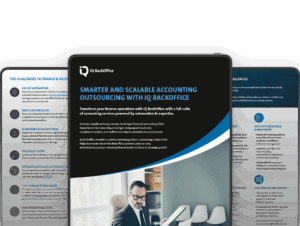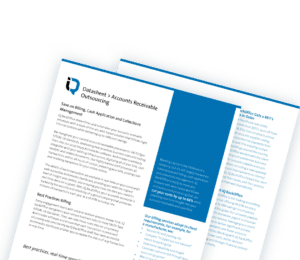
Introduction
The Accounts Payable (AP) process, often perceived as a routine corporate financial function, holds untapped potential for businesses seeking financial efficiency and strategic advantage. As a crucial process in any industry, it ensures the timely and accurate payment of financial obligations to suppliers and vendors. Managing AP can be challenging, but the difficulty level is subject to various factors, such as the organization’s size, the complexity of its financial transactions, and the efficiency of its processes. However, implementing and following a departmental best practice process can produce significant advantages such as managing costs, arresting errors, and providing data-driven perspectives that guide decision-makers toward optimized workflows that enhance overall financial performance.
Considering the range of costs associated with processing invoices, which can vary from $1.42 to $6 per invoice, it becomes evident that this expenditure is not always reflected in the accuracy of invoice information. Approximately 20% of invoices still regularly contain incorrect or incomplete details. The challenge is further compounded by the fact that a significant number of Accounts Payable (AP) departments, around 33%, continue to rely on paper checks for invoice payments.
In practical terms, issues arise when invoices lack matching purchase orders in the system or when tardy invoice notices appear without a clear understanding of the original payment request. These situations can disrupt business operations and, if persistent, may strain relationships with suppliers. It’s a pressing concern as these glitches have the potential to not only impact your business processes but also jeopardize the connections with your suppliers if not addressed promptly and carefully.
While these obstacles pose considerable challenges, these can be effectively tackled by implementing optimal strategies within the Accounts Payable process.
Embrace Technology to Automate Processes
In the digital age, manual data entry and paper-based processes are relics of the past. Implementing cutting-edge AP automation software can significantly reduce errors, enhance accuracy, and expedite invoice processing. Automation not only accelerates routine tasks but also allows your team to focus on strategic financial decisions rather than getting bogged down by mundane data entry.
Establish Robust Approval Workflows
Effective communication and streamlined approval processes are the backbone of efficient Accounts Payable. Design a clear hierarchy of approval, ensuring that every invoice goes through the necessary channels promptly. Active voice in communication is crucial here; clear communication prevents bottlenecks and reduces the risk of late payments or missed discounts. Utilize technology to set up digital approval workflows for seamless collaboration, irrespective of geographical distances.
Leverage Remote Accounting for Flexibility
Strengthen Vendor Relationships
Monitor Key Performance Indicators (KPIs)
Consider Outsourcing for Specialized Expertise
Implement a Robust Document Management System
Emphasize Training and Development
Strengthen Internal Controls
Embrace Continuous Improvement
Establishing Clear Business Rules
Automation of Business Rules
Conclusion
Accounts Payable often gets relegated to the background, viewed as a purely transactional function. However, neglecting best practices in this seemingly mundane area can have a ripple effect, impacting cash flow, supplier relationships, and even your reputation. Fortunately, the solution doesn’t require experiencing a crisis first-hand. Implementing best practices is like having a seasoned navigator guide you through potential bottlenecks and toward superior outcomes.
The beauty of best practices lies in their universal applicability. They are culled from the experiences of countless organizations, offering pre-emptive solutions to challenges you might not even anticipate. They act as a shield, deflecting issues like inaccurate invoices, delayed payments, and inefficient workflows before they disrupt your day-to-day operations.
Think of it this way: why learn the hard way that automation streamlines invoice processing when you can reap the benefits immediately? Why wait for a cash flow crunch to discover the importance of early payment discounts? By proactively adopting best practices, you’re essentially learning from the collective wisdom of others, inoculating your Accounts Payable against preventable woes.
The impact extends far beyond mere efficiency. Streamlined processes, accurate payments, and transparent communication foster stronger vendor relationships, translating to better pricing, service, and trust. Optimized cash flow frees up resources for investing in growth, while robust internal controls minimize risks and ensure compliance.
Implementing best practices in Accounts Payable is more than ticking boxes – it’s about leveraging the experiences of others to chart a smooth course towards much better outcomes. As dynamic business landscapes go, navigating blindly is a luxury you can’t afford. Navigating with best practices transforms a process from a mundane task into a powerful driver of success.
FAQs - Accounts Payable
Are You Considering Outsourcing Your Accounts Payable? IQ BackOffice Can Help.
Here at IQ BackOffice, we provide financial business process outsourcing for large and mid-sized enterprises. We serve a range of diverse industries, including manufacturing and distribution, healthcare and dental, restaurant and hospitality, energy, retail, and technology. Our solutions enable companies around the globe to automate and streamline the complex financial processes they manage.
IQ BackOffice reengineers financial processes to take advantage of best practices and leverage state-of-the-art automation. This allows us to remove manual or inefficient steps, delivering improved controls and up to 70% cost savings for our clients.
To find out more about how IQ BackOffice can reduce costs and streamline your Accounts Payable function, get in touch with us.
Read More about IQ BackOffice offerings:
How Can Outsourcing Accounting Make Accounting Departments More Efficient?
Is it Time for your Company to Consider Outsourcing Financial Operations?
The Future of Business Payments – 5 Post-Pandemic Best Practices
Business Process Outsourcing, and a Closer Look at Accounts Payable
Accounting Automation and Outsourcing – Top 5 Rookie Mistakes
What is AP Automation and Does It Work On It’s Own?
Outsourcing Accounting Processes – Does It Actually Save Money?



















